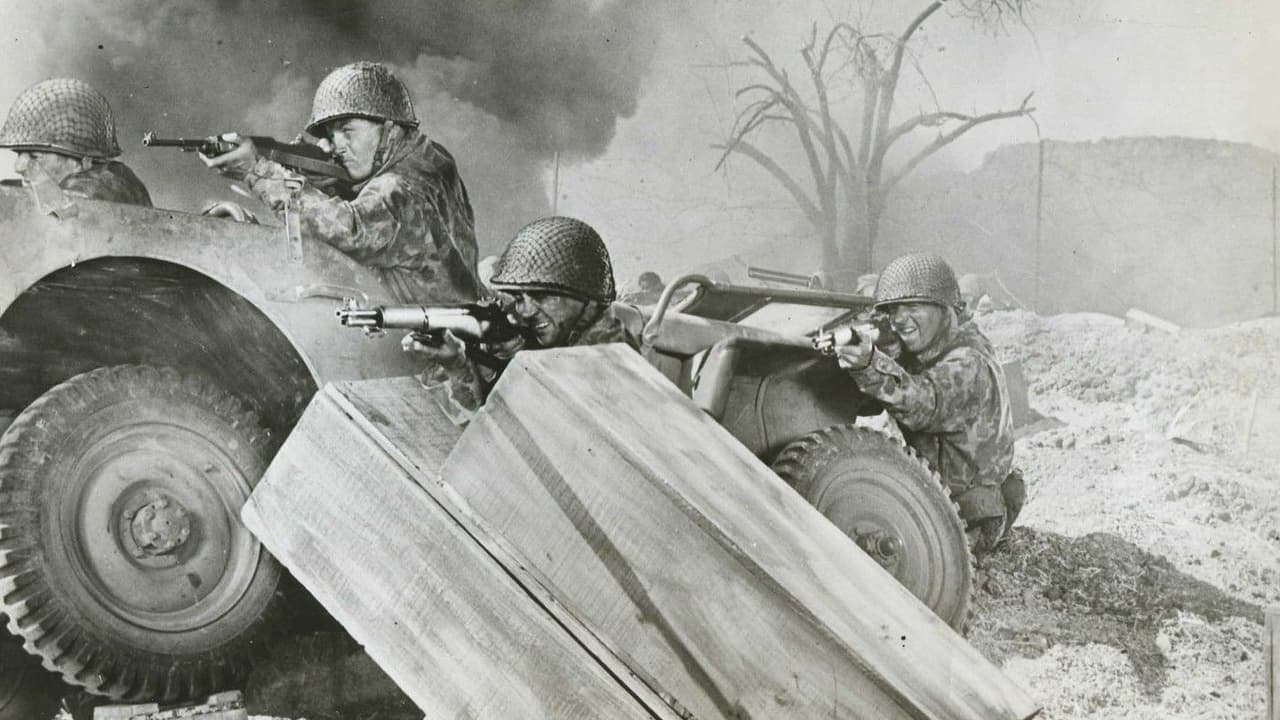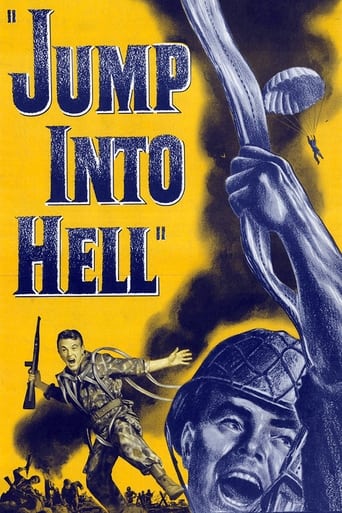

Stylish but barely mediocre overall
... View MoreDisturbing yet enthralling
... View MoreA film with more than the usual spoiler issues. Talking about it in any detail feels akin to handing you a gift-wrapped present and saying, "I hope you like it -- It's a thriller about a diabolical secret experiment."
... View MoreEasily the biggest piece of Right wing non sense propaganda I ever saw.
... View MoreIn 1992, The French made "Diên Biên Phu" a movie about the battle. It was their "Apocalypse Now". It's pretty impressive. The only other movie I have seen about the event is "Jump into Hell". However it is anything but impressive, and although there are some facts in there, the filmmakers didn't let them get in the way of the drama.When I was a kid in the 1950s, I used to like this film. At the time it seemed a novel war movie set in an obscure place called Indo-China, and as it didn't involve our guys, it could be viewed with a certain amount of detachment. But of course a few years later it morphed into the Vietnam War and did involve our guys very much indeed.Looking back, the views in the film seem awkward - Russian and Chinese communism is presented as the main reason the French are having such a hard time rather than any nationalistic spirit on the part of the Vietnamese.The look of the film is patchy. Grainy documentary footage is mixed with scenes shot for the film and it isn't seamless. The acting is of the emphatic variety with exposition issuing from all and sundry.The key points of the battle are touched upon: the outgunned and outnumbered garrison; the isolated forts all named after women that fell one by one, and the fact that reinforcements bravely parachuted in.Long after I saw "Jump into Hell", I read Bernard Fall's history of the battle, "Hell in A Very Small Place". It left me with respect for the French soldiers, especially the paratroopers. Jacques (Jack) Sernas plays one of the soldiers who parachutes in along with characters who were Hollywood's version of typical Frenchmen - wine and women being a big focus.A recurring motif is the interaction between the commander, General De Castries (Arnold Moss), and defeatist Major Maurice Bonet (Lawrence Dobkin). Each time the major suggests surrender, instead of popping him against the wall and spraying him with bullets, the general sprays him with high-minded speeches about how they are sacrificing themselves for the freedom of the world. However after a gallant stand, the garrison of Diên Biên Phu did surrender."Jump into Hell" is a hard one to recommend to an audience these days, but it does reveal the mindset of the 1950s and in a way helps explain why the next phase of the war in Vietnam was probably inevitable.
... View MoreOne of the Vietnamese characters, a troop on an airplane, pretty much sums up the overall issue in Indochina: they didn't want outsider Russians and Chinese, nor did they want the outsider French unless the French granted them some autonomy (he used the much-overused phrase "democracy"). Later, the vast majority of them didn't want the outsider Americans, either. After the departure of WWII Japanese occupiers, French Colonialists, anti-communist Americans, Russians and Chinese, and after fighting yet another border war with China after the Americans left, Vietnam finally became a sovereign nation. Whew, what a long slog they had.Many heroic and brave French military and Foreign Legion troops were sacrificed in Indochina and the film properly credits their bravery, with some well done military depictions.The Americans ended up seeming rather two-faced to everyone, having at one time sided with the Vietnamese nationalists during and after WWII only to drop them, later supporting the French because they were anti- communist, only to just simply abandon the French along with any and all representations expressly made or implied to them. I mention this mainly because some one-sided American cold war jingoism is used to an almost laughable extent throughout the movie.Diplomacy is given lip service but actually played an important part in all of the Indochina conflicts. A Geneva conference is mentioned, and in fact a later Geneva Agreement reached by U.S. Ambassador Averill Harriman in 1961/62 effectively ham-stringed subsequent U.S. actions in the region. Constant conferences went on for decades regarding the Indochina situation.The lessons of the conflict depicted in this film should not be forgotten but I believe it is a travesty that the word "Colonialism" is not emphasized in the film or in most reviews and discussions of it. I prefer to remember this film as a jump into Colonialism, which is was.
... View MoreMost of the reviewers here have been pretty spot on with their observations. It's worth noting that there were some exceptional stories of valour and gallantry at Dien Bien Phu. A good example is the Walker light tanks that were literally dropped in crates and built on-site by the Motorcar platoon at the fortress. The tanks are still there today. The action was more than a little 'faked' but not at all out of character for the 1950's. (See the Gene Barry-Angie Dickinson movie, 'China Gate' for a very comparable French Indochina picture.) It would have been far more compelling as a docudrama chronicling the events of the siege from the beginning until the tragic (at least for the Legionnaires) end. This is a movie that would be well worth a remake, however unlikely that is. All in all there are many worse war movies. The appearance of a young and beautiful Patricia Blair in her pre-Daniel Boone days is a plus. It's disappointing that she did not have a more expansive career.
... View MoreWell done look at the French loss at Dien-bien-phu which some historians believe led to their withdrawal from Indo-China. Demonstrates the difficulties in fighting a committed enemy on his own ground long before US faced the same problems. French efforts to reinforce and save their forces in an enclave surrounded by soldiers that would, in later years, be described as Viet Cong prove to be unsuccessful. Loyalty to comrades on the ground leads French paratroopers to jump into a death trap.Stars Jacque Sernas who later played Paris, Prince of Troy, in "Helen of Troy" with Rosanna Podesta as Helen. That 1956 movie should be a good measuring stick for the new Brad Pitt version.
... View More